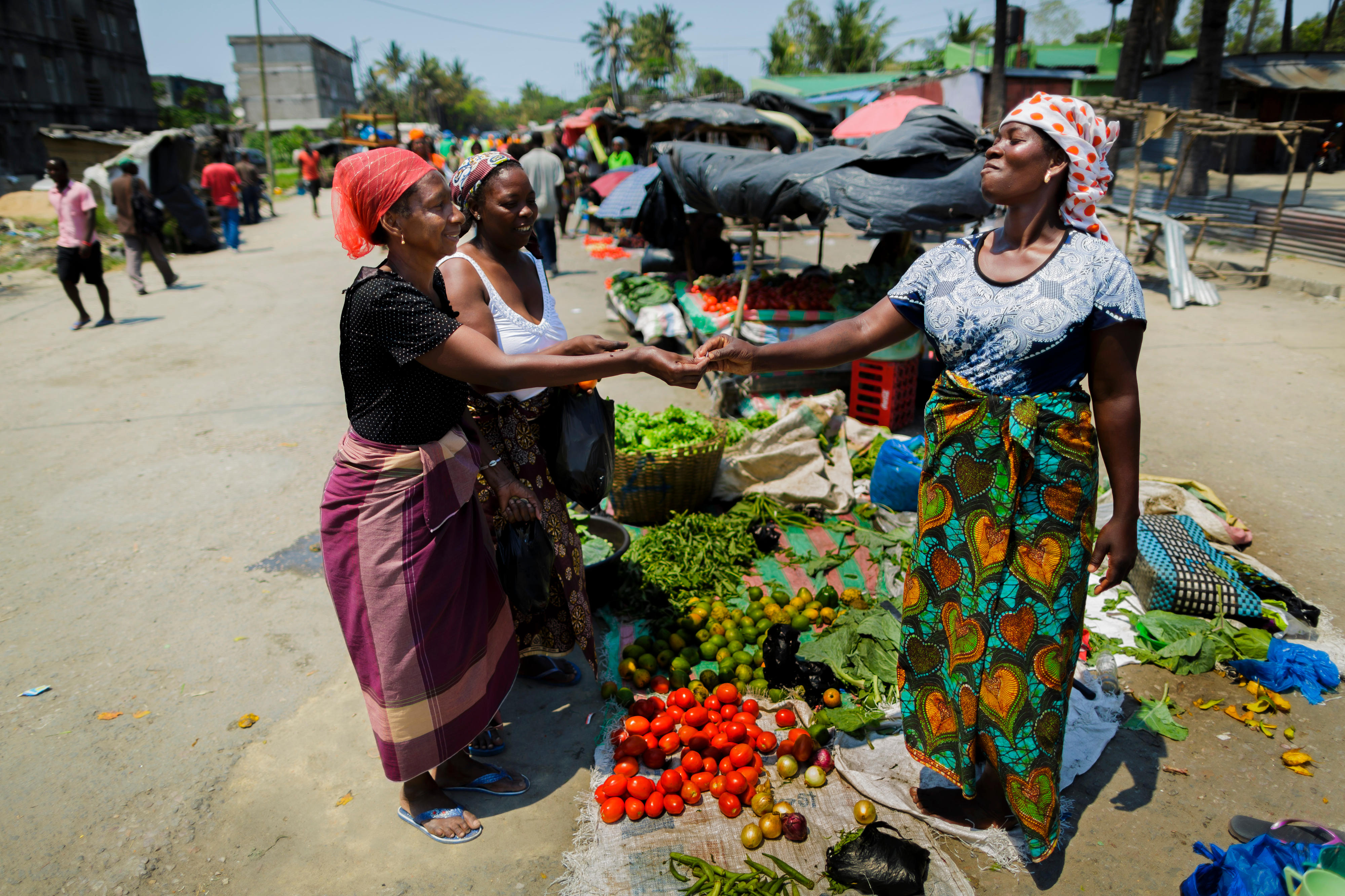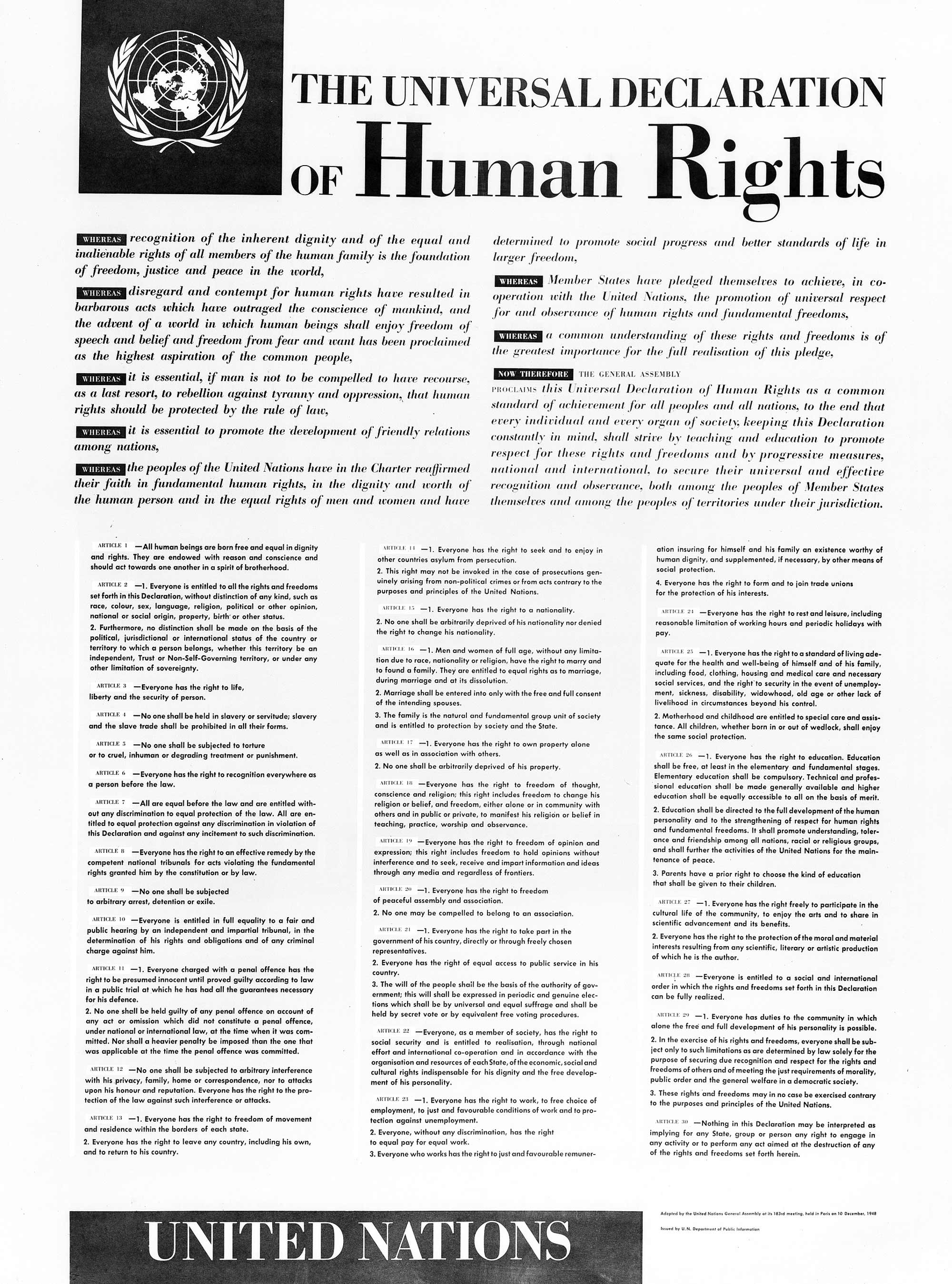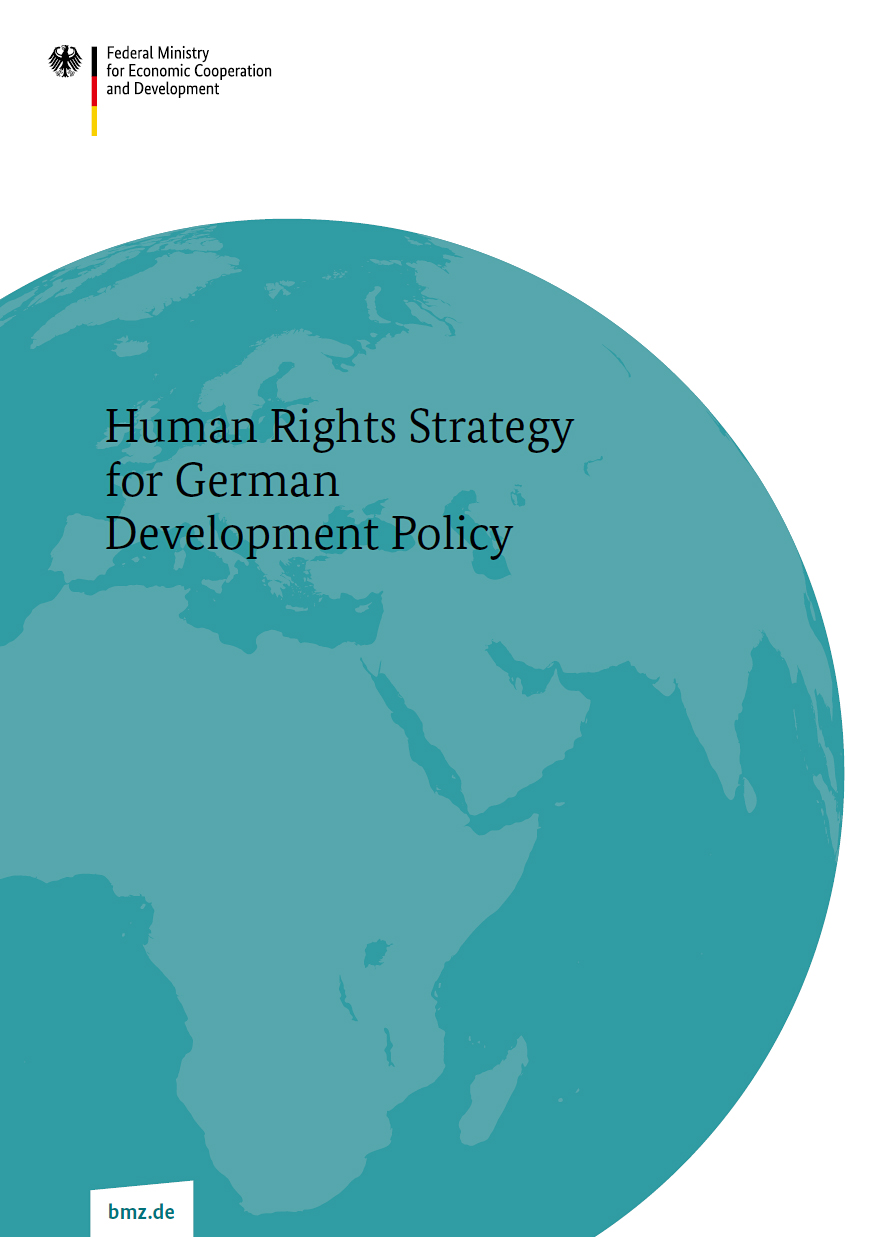Street market in Beira, Mozambique
Copyright© Thomas Trutschel/photothek.net
Human rights and development
A life in dignity is only possible when human rights are respected, protected and upheld – for instance the right to food, the right to the highest attainable standard of health, the right of access to education or the rights to freedom of assembly, freedom of speech and freedom of access to information.
Germany's development policy is based on the universal human rights and is thereby grounded in the fact that
(1) human rights have a value per se as an expression of human dignity. All people are born with these rights.
(2) there can be no sustainable development without human rights – almost all the global Sustainable Development Goals and their targets relate to human rights.
(3) our partner countries and Germany have made a legally binding commitment to respect, protect and fulfil these human rights.
That is why human rights, gender equality and the inclusion of people with disabilities are defined as guiding principles for the values-based approach (a quality criterion) of German development policy.
The BMZ’s human rights strategy
The human rights approach of Germany’s development policy is laid down in the human rights strategy of the Federal Ministry for Economic Cooperation and Development (BMZ).
The strategy is grounded in the idea of human beings having individual rights. Promoting, protecting and upholding these rights is not an act of public generosity towards passive target groups in need of assistance. It is a legal obligation entered into by the countries concerned – both Germany and its partner countries.
Human rights principles such as non-discrimination, participation, transparency and accountability guide our work.
Germany’s human rights-based development policy puts a special focus on the rights of women and socially disadvantaged groups. People worldwide experience discrimination and oppression, be it because of their gender, their gender identity or their sexual orientation, because of disability or age, because of their ethnic background, or because of their religion. The feminist development policy of the BMZ highlights key considerations of the human rights-based approach.
Of special importance for German development policy are the rights of
- Children and young people
- People with disabilities
- Indigenous peoples
- Lesbian, gay, bisexual, trans, intersex and other queer persons (LGBTIQ+)
- Refugees and migrants
Action areas
The human rights orientation applies for all the main action areas.
All official development cooperation projects take human rights standards and principles into account (mainstreaming). The human rights strategy is complemented and further specified by a guideline. This guideline provides support for concrete implementation of the human rights-based approach in development cooperation projects.
In addition to this general obligation to promote basic rights, projects specifically aimed at promoting the realisation of human rights are also implemented under German development cooperation. The BMZ transparency portal (External link) provides information on these measures. (Via the “Detailed search” tab users can select “Human rights” from the options listed in the “Sectors” drop down menu. The “Policy Marker” drop down menu lets users select projects that target gender equality or the inclusion of persons with disabilities, for example.)
The German government agrees strategic planning details for its development cooperation in its policy dialogues with partner governments. These dialogues between partners are a prerequisite for implementing a human rights-based development policy.
If grave human rights abuses occur, official development assistance may be reduced or suspended. In such countries, the German government tries to support people who are especially affected by poverty and human rights violations in other ways, for instance by providing financial support for the work of non-governmental organisations, UN organisations, churches or political foundations.
The human rights-based approach also sets the tone for interaction with other fields of policy (coherence), especially as regards potentially conflicting interests (for example trade and economic interests or resource security).
In addition, the human rights strategy has provisions to ensure that German development cooperation activities do not have any negative impact on human rights in partner countries (human rights risk assessments, child protection provisions). Should this happen unintentionally nonetheless, complaints mechanisms offer a remedy.
As at: 05/11/2024



